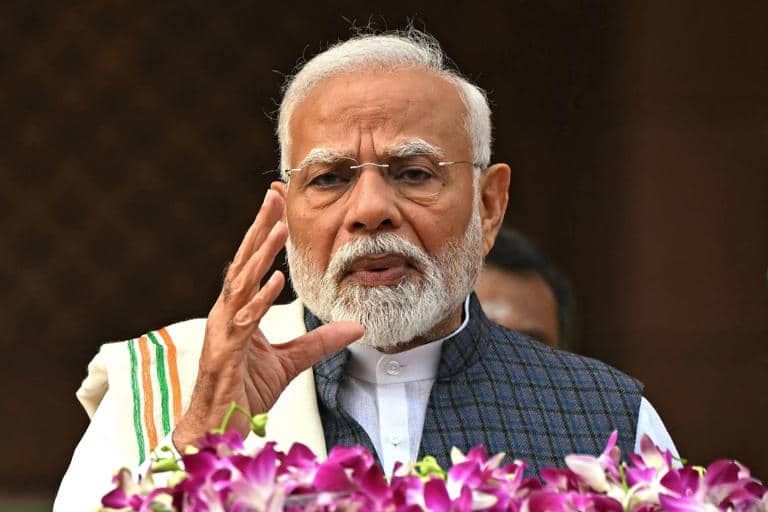India’s top maritime figures visit South Korea’s big three
Strengthening India-South Korea Shipbuilding Ties

On December 3, a high-level Indian delegation visited HD Hyundai Heavy Industries (HD HHI) in Ulsan, South Korea. This visit marks a significant milestone in enhancing bilateral cooperation in the shipbuilding sector. The delegation, known as the “Indian Shipbuilding Delegation,” included prominent figures such as R. Lakshmanan, Joint Secretary of India’s Ministry of Ports, Shipping, and Waterways; Shri Madhu Nair, Chairman and Managing Director of Cochin Shipyard; and Binesh Kumar Tyagi, Chairman and Managing Director of the Shipping Corporation of India (SCI). They were accompanied by Cho Min-su, Vice President and Head of the shipbuilding business division at HD HHI.
This visit is notable as it is the first of its kind in nearly a decade, following Indian Prime Minister Narendra Modi’s trip to South Korea in 2015. The delegation toured HD HHI’s extensive docks and land yards, which have the capacity to construct up to 50 large-scale vessels annually. They received a comprehensive briefing on the shipyard’s advanced technologies, including eco-friendly shipbuilding processes. A representative from the delegation highlighted the urgent need for India to diversify its fleet to meet growing maritime demands.
Ambitious Goals for India’s Shipbuilding Sector
The central aim of the delegation’s visit was to explore the acquisition of 1,000 new commercial vessels. This includes a variety of ship types such as containerships, liquefied natural gas (LNG) carriers, ultra-large crude carriers (ULCCs), and car carriers. To further their objectives, the delegation also visited Hanwha Ocean and Samsung Heavy Industries (SHI), completing a comprehensive tour of South Korea’s leading shipyards.
India has set ambitious targets for its shipbuilding industry, which currently accounts for less than 1% of the global market. The country has unveiled a strategic roadmap aiming for a top-10 global ranking in shipbuilding by 2030, with aspirations to break into the top five by 2047. This initiative aligns with India’s broader strategy to bolster its maritime capabilities, especially given that 95% of its trade volume is transported by sea. Currently, India spends approximately 110 trillion won ($75.4 billion) annually leasing foreign-owned ships, a figure projected to rise to 500 trillion won ($342.53 billion) by 2047 as trade volumes increase.
Despite having 28 domestic shipyards, most are limited to producing small and medium-sized vessels, such as ferries. They lack the capacity to construct large-scale commercial ships. Strengthening the domestic shipbuilding sector is crucial for India to meet its maritime needs and reduce reliance on foreign vessels.
South Korea: A Leader in Shipbuilding Technology
South Korea stands as a global leader in shipbuilding, known for its cutting-edge technology and robust infrastructure. The country’s shipyards have reemerged as powerhouses after a prolonged downturn in the 2010s. Since the 1970s, South Korea’s shipbuilding industry has experienced rapid growth, surpassing Japanese and European competitors by the late 1990s. While China currently leads in production volume, South Korea remains dominant in high-value markets, particularly in LNG carriers and eco-friendly dual-fuel technologies.
Strategic hubs like Busan, Ulsan, and Geoje have fostered a strong industrial ecosystem, allowing South Korea to maintain its technological edge. Despite challenges from China’s aggressive pricing and Japan’s restructuring efforts, South Korea’s focus on specialized, high-value ship types has solidified its competitive advantage. The country’s expertise spans various sectors, including vessels for transporting energy resources, containerships, and naval ships. Its LNG carriers are regarded as the gold standard in the industry, gaining prominence amid heightened energy security concerns following the Russia-Ukraine war.
The collaboration between India and South Korea in shipbuilding is not just beneficial for both nations but is also crucial for addressing global maritime challenges. As India seeks to enhance its shipbuilding capabilities, South Korea’s experience and technological advancements will play a vital role in shaping the future of the industry.
